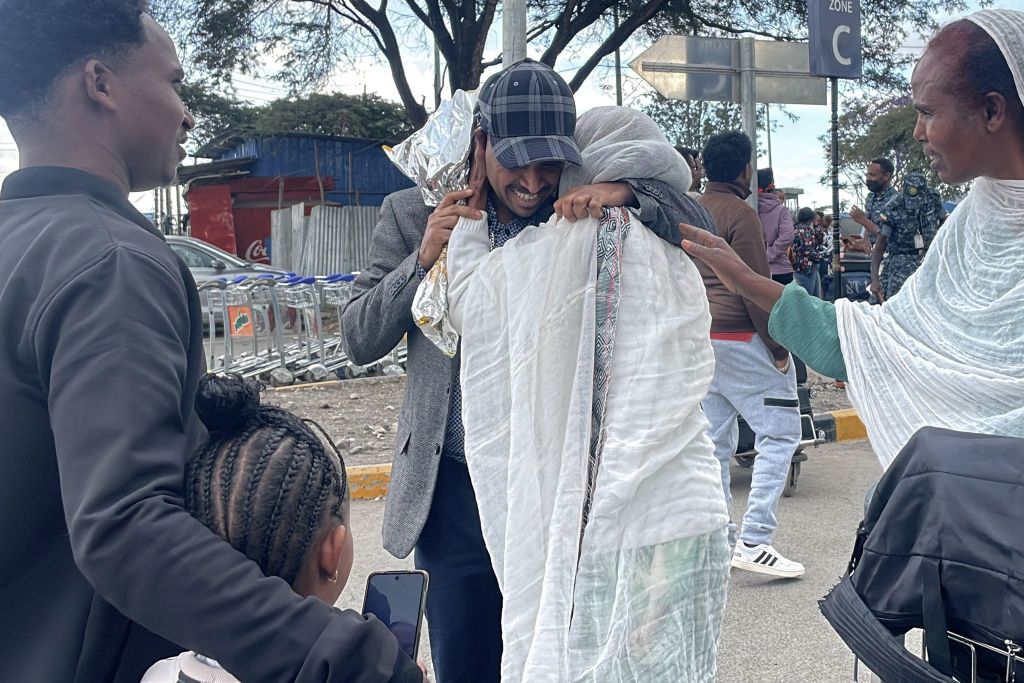Does Peace Have a Chance in Tigray?
ADF STAFF
After two years of war in Ethiopia’s north, Tigrayan families reconnected in January and cried tears of joy and grief.
“My mother cried when she heard my voice after all these months,” a 42-year-old man in Addis Ababa told Agence France-Presse. “I also cried.”
Flights to the region’s capital, Mekele, resumed in late December. Banks have reopened. The power grid is reconnected. Telephone and internet connections are restored.
The early results of a fragile peace agreement between the Ethiopian federal government and the Tigray People’s Liberation Front (TPLF), signed in Pretoria, South Africa, on November 2, 2022, are hopeful and encouraging.
But amid the signs of normalcy there are potholes scattered along the path to lasting peace. Experts hope the parties will take a long-term view.
“As the TPLF and the Ethiopian government start to implement the terms of their agreement, they should do so with the ultimate goal of averting a similar catastrophe in the future,” governance and development researcher Addisu Lashitew told Foreign Policy magazine.
“Now is the time to build enduring institutions that can ensure that war will no longer be the means for resolving Ethiopia’s political differences.”
Desperately needed humanitarian aid is flowing into the previously blockaded region. Despite significant progress, an official on January 12 said only 1.5 million people have been reached out of an estimated 5.2 million who need assistance.
Also in mid-January, the TPLF began turning over its heavy weaponry. Disarmament will lead to the lifting of its designation as a terrorist group by the federal government, as the TPLF seeks to operate as a political group.
But it will not govern Tigray in the short term, as the TPLF and the federal government will appoint an interim administration until elections are held.
“Overall, the TPLF played its few cards shrewdly,” Lashitew said. “The agreement turns back the clock and places the TPLF at the same position that it would have been in had it peacefully ceded power … prior to the outbreak of war in November 2020.”
The greatest threat to peace in Tigray likely is the continued presence of militias and Soldiers from neighboring Eritrea.
Amhara fighters aligned with ethnic militias began to withdraw from Tigray on January 13, but there are no signals that Eritrean troops will follow.
Historically disputed land in western Tigray, which Amhara forces continue to occupy, is expected to continue being a destabilizing danger.
Economic instability is another concern in maintaining peace in Ethiopia.
The African Union estimates that as many as 600,000 Ethiopians were killed in the conflict. Large parts of Tigray need to be rebuilt. Some estimate reconstruction will cost as much as $20 billion in the next three years.
University of Oxford scholars Stefan Dercon and Christian Meyer questioned whether funding would be used fairly in all areas affected by fighting.
“The return of international economic support has to be seen as part of peacebuilding efforts, a way to protect livelihoods, and a means to ensure political stability,” they wrote for Foreign Policy.
Other observers have criticized the peace agreement’s lack of accountability for war criminals.
The United Nations and human rights groups have concluded that all parties committed crimes against humanity, ethnic cleansing and acts of genocide.
Dr. Mehari Taddele Maru, a scholar of security, governance and human rights, emphasized the need to provide victims with a mechanism for effective remedies.
“Accountability and justice are powerful tools to prevent the repetition of atrocities and conflicts in the future,” he wrote for Al-Jazeera in mid-December.
“Properly investigating atrocities and then starting an accountability process is the only way to guarantee lasting peace in Ethiopia. The Pretoria peace deal will not hold long without these steps.”


Comments are closed.